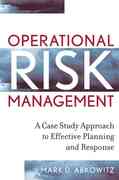Question
Which of the following is true of a decentralized company? a.In a decentralized company, the owner makes all important operating and strategic decisions. b.Local managers
Which of the following is true of a decentralized company?
a.In a decentralized company, the owner makes all important operating and strategic decisions.
b.Local managers in a decentralized company can make better decisions using local information.
c.Managers in a decentralized company make and implement fewer decisions than do managers in a centralized firm.
d.In a decentralized company, overall profit margins can mask inefficiencies within various subdivisions.
e.In a decentralized company, lower-level managers are responsible only for implementing decisions.
Which of the following is true of decentralization?
a.It protects segments of a company from competitive pressures.
b.It is usually achieved by creating units called divisions.
c.Decentralization allows higher management to make better decisions by using local information.
d.Decentralization allows only the CEO of a company to make all important decisions.
e.Under decentralization, lower-level managers are responsible only for implementing decisions.
The disadvantage of a payback period is that it:
a.considers total profitability, requiring the forecasting of all future cash flows.
b.ignores the project's total profitability.
c.uses an internal rate of return to calculate profitability.
d.considers the time value of money.
e.uses operating income rather than cash flows.
An investment of $10,000 provides average net cash flows of $500 with zero salvage value. Depreciation is $15 per year. Calculate the accounting rate of return using the original investment. (Note: Round the answer to two decimal places.)
a.5.19%
b.6.47%
c.4.85%
d.3.41%
e.3.29%
Davis Company is considering the purchase of a new piece of equipment that will cost $1,600,000 and have a life of five years with no expected salvage value. The expected cash flows associated with the project are as follows:
Year Cash
Revenues Cash Expenses &
Depreciation
1 $1,500,000 $900,000
2 $1,500,000 $900,000
3 $1,500,000 $900,000
4 $1,500,000 $900,000
5 $1,500,000 $900,000
What is the accounting rate of return for the project?
a.47.00%
b.37.50%
c.43.75%
d.83.33%
e.31.25%
Mark is considering investing $90,000 in a project with the following cash revenues and expenses:
Year Revenues Cash Expenses &Depreciation
Year 1 $20,000 $15,000
Year 2 $25,000 $20,000
Year 3 $18,000 $15,000
Year 4 $30,000 $10,000
Year 5 $40,000 $10,000
What is the accounting rate of return for the project?
a.3%
b.14%
c.15%
d.7%
e.Cannot be calculated with this information.
Which of the following methods helps in choosing the project that maximizes the wealth of shareholders?
a.The payback period
b.The net present value
c.The accounting rate of return
d.The variance analysis
e.None of these choices are correct.
Which of the following methods assumes that each cash inflow is reinvested at the rate at which the present value of a project's cash inflows equal the present value of its cash outflows?
a.The net present value
b.The ratio analysis
c.The average rate of return
d.The internal rate of return
e.None of these choices are correct.
Kenner Company is considering two projects.
Project A Project B
Initial investment $85,000 $24,000
Annual cash flows $20,676 $ 6,011
Life of the project 6 years 5 years
Depreciation per year $14,167 $ 4,800
Suppose that Kenner Company requires a minimum rate of return of 8%. Which project is better in terms of net present value?
a.project B with NPV of $7,756
b.project A with NPV of $10,585
c.project A with NPV of $4,210
d.project B with NPV of $1,212
e.both projects have the same NPV
Step by Step Solution
There are 3 Steps involved in it
Step: 1

Get Instant Access to Expert-Tailored Solutions
See step-by-step solutions with expert insights and AI powered tools for academic success
Step: 2

Step: 3

Ace Your Homework with AI
Get the answers you need in no time with our AI-driven, step-by-step assistance
Get Started


